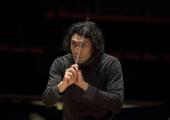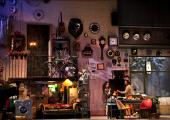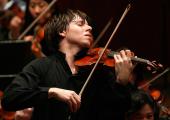London Philharmonic Orchestra, Jurowski, Royal Festival Hall

The LPO's principal conductor in effortless control of juicy operatic decadence
Dissatisfied housewives who eventually stand by their men joined jewelled hands in a divine evening of operatic decadence. Suppressed Bianca all but steps over the body of her strangled lover to get at the muscles of her killer husband in Zemlinsky’s A Florentine Tragedy, taking its cue from the deep purple imagery of Oscar Wilde’s story. And in Richard Strauss’s Die Frau ohne Schatten (The Woman without a Shadow), the Dyer’s Wife readily gives up her dreams of sacrificing motherhood and taking up with a fantasy toyboy when domestic violence looms.









